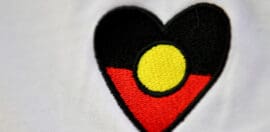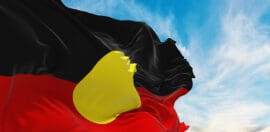Indigenous Australians struggle as nation’s money gap widens

15 October 2019 at 8:14 am
The finance gap between Australian cities and regional areas is one of the worst in the developing world
Indigenous Australians are some of the worst affected by the financial disparity between rural and metro Australia, advocates say.
Marking the start of Anti-Poverty Week, the First Nations Foundation (FNF) said government and financial services needed to balance the growing economic gap, which is severely affecting Indigenous Australians.
The calls by the foundation follow the release of new research by the International Monetary Fund on Thursday, which found across 22 developed nations, Australia has the fourth-largest gap between wealthy and struggling regions.
The richest areas of Australia – including parts of Sydney and Melbourne – were at least twice as well off as the poorer areas, which included regional Western Australia and Queensland.
Researchers found that the disparity between regions was growing, and there were severe health and social implications because of the gaps.
“On average, people in lagging regions are worse off when it comes to health, with higher infant mortality and lower life expectancy,” the researchers said.
Amanda Young, FNF CEO, told Pro Bono News the report confirmed what she already knew.
“Having just come back from two trips to remote Indigenous communities in Arnhem Land where you’re living the experience of people having no money, you can certainly see the disparity,” Young said.
She said in order to move forward it was important to recognise that Indigenous people in remote areas were in an economic system that actively excluded them.
“Indigenous people have been unable to learn and pass down basic financial literacy because it has only been since the 1970s that Indigenous people have been given legal permission to receive an income or own property,” she said.
She said the many struggles of how the poorest members of Australian society survived would come to the surface during Anti-Poverty Week, and Aboriginal and Torres Strait Islanders needed to be made a priority.
“Our research has shown that nine in 10 Indigenous people do not have financial security,” she said.
“Three in four Indigenous Australians are excluded from financial services, including superannuation, insurance, and financial advice. One in two is in severe financial stress.”
She said that supporting Indigenous-led finance solutions, increasing Newstart and banning the Cashless Welfare Card in remote communities were all top priorities for improving economic conditions in remote areas.
“Indigenous people respond to Indigenous-led, trusted organisations and our offer to government and financial services is to work with us to achieve a better result,” she said.








